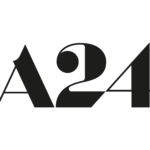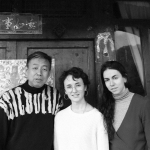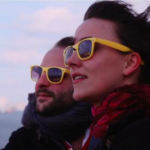Sonna is a newcomer on the filmmaking scene who recently directed his first short film in competition for the Nikon Film Festival. I had the chance to meet him to talk about his projects, the industry and what’s next for him.
This interview has been translated, shortened and edited for readers’ comprehension.
First of all, thank you for accepting this interview. It only seemed natural to me to dig deeper into the person hiding behind Sonna. To begin, I would like to ask you: how would you define yourself as an artist?
At the very beginning, before being a fan of cinema or writing, I’m a fan of fiction. I define myself as someone who imagines stories and then I let myself the possibility to navigate between different mediums. I don’t want to be stuck with only one art form but right now and for the past few years, I watched and enjoyed a lot of films, so filmmaking is predominant.
So, do you see the fiction you write as something that needs a visual support to be better transcribed and understood?
Actually, yes. For most of them, I imagine a visual support like drawings, images or even animation but I don’t think I could only write a novel.
Do you read scripts to know how to write them or did the ability comes naturally to you?
I’ve read a lot when I wrote my first one because I didn’t know what a script was.
And did you ever think about doing some sort of training? Did you maybe watch tutorials, or you just dove right into it after reading some scripts?
I went straight into it without training. And this is something that came up often because when I worked on my first short film, I was with experienced people who told me that it was a strength. The fact that I wasn’t « formatted » or « stereotyped » brought a way of seeing things and working that was new.
Your first short film, Imag!ne is about a man facing his demons. It’s violent, exhilarating but raw. How did the idea come up to you? Did you always imagine that it would be the first thing you’d direct?
I just live my life, and inspiration comes from everything I see, hear, from a lot of things. For me, it’s very graphic, very visual. So before having a scenario, I have above all only images or sounds. I live my live and suddenly, a strong image comes to me. For Imag!ne, I had the end scene where the guy is above his opponent, beating him up. I don’t know why nor how it came to me, I just let the idea live inside my head for a few days. I consider that if I still remember it after a few days, a few weeks, then it’s an idea that I want to keep working on. If I forget it, it’s okay, I’ll have other ones.
I guess it’s not easy to find producers and financing especially for short films. Do you think that these kinds of difficulties reinforce the idea that cinema is viewed as something unreachable, especially when you don’t have the funds nor the network?
I think it’s hard. Firstly, there is a financial barrier: not many students can afford auto-producing a short film. In the end, you can do it with not much but if you want to reach a certain level of « quality » at some point, this is not rocket science: the same idea with a bigger production budget will inevitably be better, at least for me. But beyond the financial aspect, there is also the issue of information. If you haven’t been to film school, you don’t know what to do, you’re lost. You don’t have any support, you don’t know how to write a scenario, how to reach a production company and write a letter of intent: you just don’t know how to sell yourself, which can be complicated. If you are not aware that most of the times, nobody will answer, you can quickly lose motivation. There are a lot of aspects that make it hard, both psychologically and in practice. So, I do think it’s still quite hard today.
What are you next objectives and ambitions filmmaking-wise?
Ideally, I would like to only make short films in the next 2-3 years because I wrote a lot of ideas that would fit, and I want to experiment without pressure. I would like to make a feature film when I’m already well-known for my short films, at the moment when people would wonder « when is he going to direct his first feature film? ». Because I’m scared that my first one will turn out bad and flop, and that I won’t have the opportunity to direct another one ever again.
Do you think that failing with your first would doom your career?
I think it’d be hard. I see short films as a place to experiment, to find my touch and my style, to have a very distinct universe and once I’m ready and people are waiting for it, then make feature films. Because I want them to be classics.
Can you think of a director whose first film’s reception is the one you’d like for yours?
I think I want Tarantino’s career. The guy made a few movies, and there are all classics.
And in at least 50 years’ time, what would you like people to remember about your filmography?
Honestly, if I can make at least one film, I’d be happy. I don’t think I can project myself that far, but for now I’d like for my film to be released in theatres, to go into a cinema in secret and just see people’s reactions. I’d just like for them to leave with an emotion, the emotion I’m trying to convey. If my film made people, I don’t know, feel something, that would be insane.






